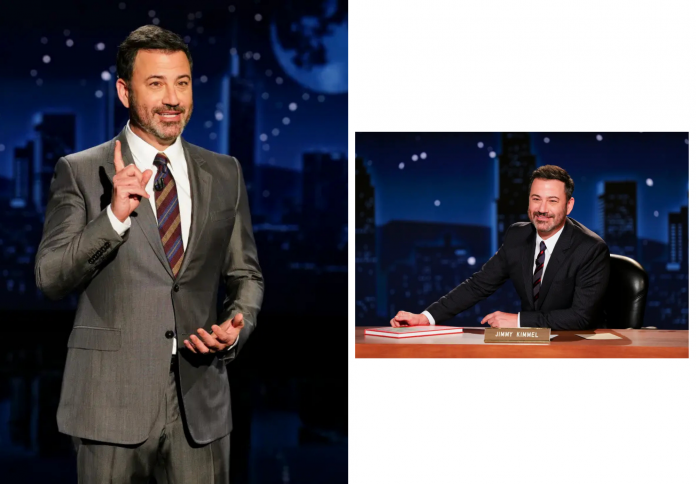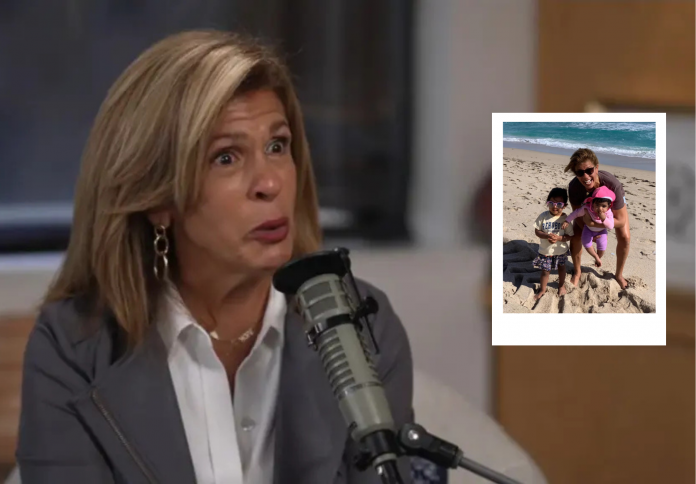The sudden, indefinite suspension of a late-night institution sent shockwaves through the television landscape, sparking a furious national debate about the limits of satire and the true cost of corporate control. Yet, as the industry speculated on the reasons for his return, the answer lay in a simple, profound truth: loyalty. Reports indicate that the beloved host, who had fully expected to walk away from the network permanently, agreed to return to the air not for his own career, but for the sake of the hundreds of staff members who rely on his show for their livelihoods. This choice—prioritizing the financial stability of his production crew over his own desire to leave—transformed a corporate controversy into a powerful, humanizing lesson in professional respect and personal commitment.
The Principle of Loyalty: A Return for the Crew
At the heart of Jimmy Kimmel’s decision to return to the network was a profound sense of responsibility to his team. The indefinite pre-emption of the show had immediately put the livelihoods of hundreds of staffers—from writers and producers to technical and support crews—into jeopardy. According to reports, the host was unwilling to allow his employees to miss any more pay or work than they already had. This move was a clear display of respect for everyone who works tirelessly to bring the show to air each night, a rare and commendable act of corporate compassion in an industry often defined by self-interest.
The host’s immediate concern was to ensure the financial security of his entire production family. By returning to the network, he stabilized the operation, offering a vital reprieve to those who might have otherwise faced immediate uncertainty. Furthermore, the return was allegedly intended to buy his employees “some time to figure out their next steps,” suggesting a calculated move to ensure his team was protected regardless of his own long-term future with the network. This act of professional loyalty set a new standard for a celebrity’s commitment to their staff.
The Spark and the Suspension: The Corporate Line in the Sand
The controversy that led to the show’s abrupt suspension centered on a highly charged monologue. In addressing a sensitive and highly public political incident, the host crossed an invisible, but apparently firm, line for the network. The move by the conglomerate to pre-empt the show indefinitely was a dramatic exercise of corporate power, igniting a national discussion about the limits of free speech for media personalities working within major network systems.
The suspension highlighted the precarious tension between a late-night comedian’s commitment to unfiltered satire and a large corporation’s need for political neutrality, especially in a deeply divided media landscape. While the host was exercising his satirical license, the powerful affiliate stations and parent company responded with a swift, decisive move that immediately silenced his platform. The action underscored the financial and political pressures networks face, proving that even a long-running, successful show is vulnerable when it touches the third rail of national controversy.
The Free Speech Firestorm: A Celebrity Condemnation
The network’s decision to suspend the show was met with an immediate and furious backlash from across the entertainment and media industries. The controversy quickly escalated into a high-stakes debate over the principles of artistic freedom and corporate censorship. The host received a surge of vocal support from his fellow late-night colleagues, a remarkable display of solidarity within a fiercely competitive field.
Furthermore, a significant collective action was taken when more than 400 celebrities publicly condemned the suspension. Their collective statement characterized the network’s move as a “dark moment for freedom of speech,” signaling a deep concern that corporate interests were overriding a core democratic tenet. This celebrity condemnation, coupled with reports of subscribers boycotting the network in protest, provided a powerful, visible endorsement of the host and significantly raised the stakes for the network to resolve the situation.
The Negotiated Truce: A Future in Question
The host’s eventual return was reportedly brokered after a series of “thoughtful conversations” between the network and the host’s team. While the immediate crisis was resolved with the show returning to its national time slot, the underlying conflict was clearly far from over. Adding another layer of complication to the situation, a major television station conglomerate that owns several affiliate stations announced that it would continue to replace the show with local news programming.

This continued defiance from a large group of affiliate stations indicates a deep, unresolved tension within the network’s ecosystem. The public disagreement over the show’s content and its presence on the airwaves suggests that the “truce” is a fragile one. The host returns to a landscape where his reach is demonstrably curtailed in certain markets, highlighting the continued corporate fallout and setting the stage for a precarious and closely scrutinized tenure moving forward.
The Contractual Clock: The Price of Continued Service
The reports surrounding the host’s future intentions are unambiguous: his return is a temporary measure, and his tenure is expected to end once his current contract concludes in 2026. Sources indicate that the host had been prepared to depart the network immediately and had fully expected not to be coming back at all. His agreement to stay for the next year is purely a concession made out of loyalty to his staff.

The only condition that would reportedly convince the late-night veteran to re-sign with the network is an extraordinary financial offer, positioning him as a high-value commodity in the corporate landscape. This stance transforms his contract into an ultimatum: either the network meets a significant, likely unprecedented financial demand, or it prepares for the end of a two-decade-long fixture on its late-night schedule. The contract’s expiration in 2026 now hangs over the show, making every episode a step closer to a potential, permanent finale.
The Unscripted Monologue: Coming Out Swinging
With his return to the air, all eyes are fixed on the host’s first monologue, which is widely anticipated to be one of the most significant and consequential moments of his career. Sources close to the production have suggested that the host feels emboldened by the recent turmoil, with one outlet claiming that the “last week has made his balls bigger.” The expectation is clear: he is “not going to roll over and just take it.”

The industry is bracing for him to “come out swinging,” suggesting the monologue will be an unapologetic, direct address of the suspension, the political fallout, and the corporate politics that led to the event. This highly anticipated address is not just a return to business; it is a moment of reckoning. The host is expected to use his platform to reaffirm his right to satire and send a clear, powerful message to both the network and the public that the comedian who was suspended is returning more determined, and more outspoken, than ever before.










